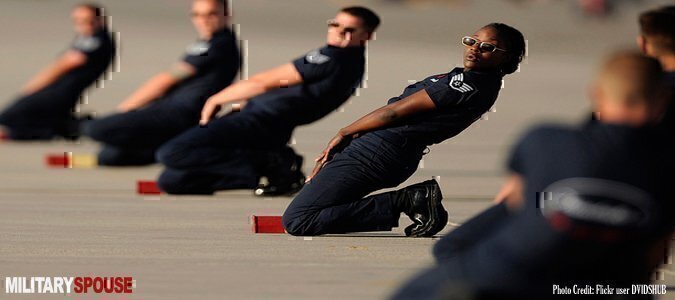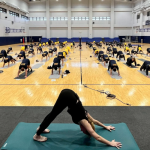I don’t remember hearing much about Women’s History Month growing up. I don’t think it’s because people were resistant to it; I think people were unprepared. I went back to school for a degree in Social Science education and one of the most intense debates in all of my classes was how to teach history.
Strangely, history can change. With technological advances, research, and societal norms always evolving, the viewpoint of history changes. I was in school when viewpoints changed, and I loved it. I was so excited to learn about the contributions African Americans made to our nation. What about women? As a little girl, I wanted to learn all I could about women and their roles in our world.
Photo Credit: Flickr user DVIDSHUB
In 1981 Congress passed Public Law 97-28 which authorized the week starting on March 7, 1982 to be Women’s History Week. For five years, the President would proclaim one week in March to be designated to women and their contributions to our country, Women’s History Week.
The Nation Women’s History Project petitioned Congress to designate March to be Women’s History Month. From 1988-1994, each year Congress would pass resolutions requesting the President to proclaim March to be Women’s History Month. In 1995, President Clinton issued the first annual proclamation that has continued on with President’s Bush and Obama, that March is Women’s History Month.
As far back as the Revolutionary War, women have served. They were nurses, cooks, seamstresses, soldiers, and spies. Have you heard the tales about Molly Pitcher, the Culper Spy Ring, and Hannah Blair in North Carolina? These women served our Nation when we were fighting for our freedom.
Women have kept their homes safe during the Civil War, settled the West, fought for our rights to vote, and made airplanes during World War II. It’s amazing to me to see what women have done for our country.
In September 2014 a new Air Force recruiting commercial entitled New Frontiers debuted. General Mark Welsh, the Air Force Chief of Staff asked the question, “What barriers will we break next?” While he was not specifically talking to women in the military, part of me wonders if maybe he was.
We have women flying in combat missions, women commanding troops; even now we have women completing infantry and combat training in certain branches. What barriers can and will women in our military break next?
Without their drive and expertise, our Army would be very different. Look at Major Chrissy Cook who led her Bradley team to Top Gun status. She was the first female Bradley commander.
What about the Air Force? Did you know the AF has had two female Secretaries of the Air Force, Sheila E. Widnall and Deborah Lee James?
Page: 1 2





